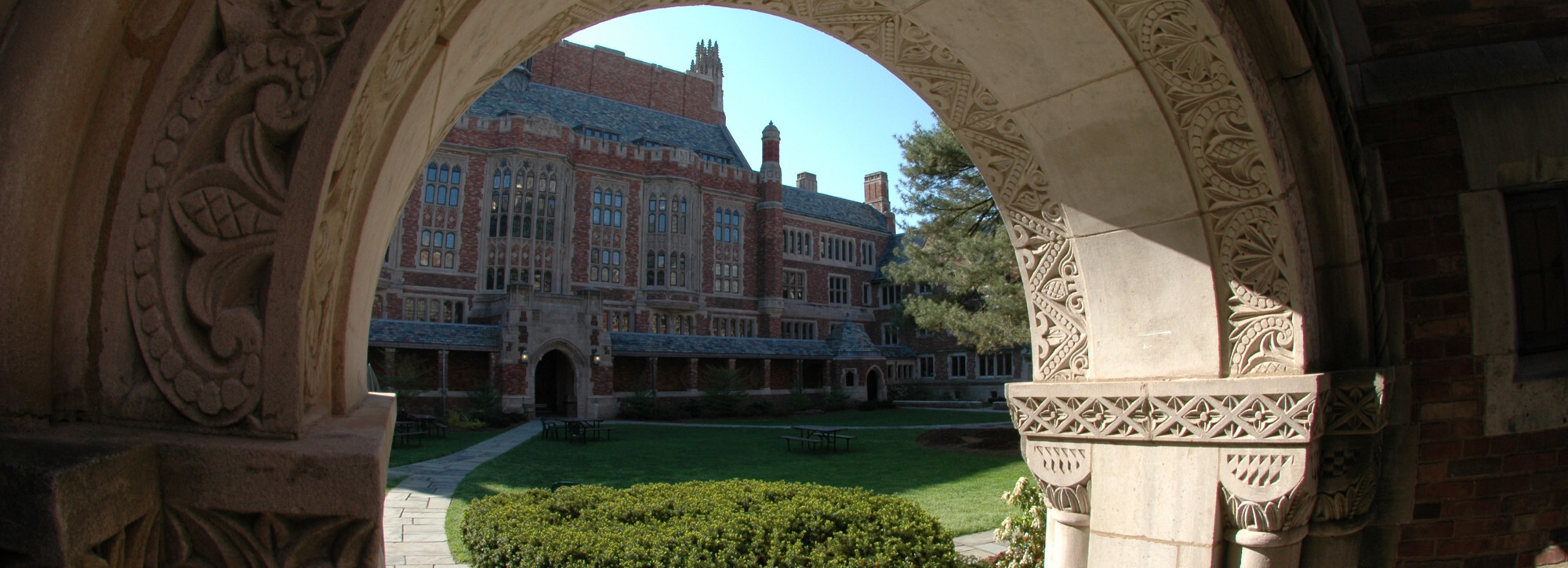The Paul Tsai China Center at Yale Law School conducts programming on a wide range of issues concerning U.S.–China relations, involving practical inputs to each country’s policy-making community, research, and teaching.
Projects and Activities
At this time of difficult relations between the United States and China, the Paul Tsai China Center (PTCC) is involved in a wide range of dialogues and activities with a variety of figures in the United States, China, Taiwan, Europe and Asia that address both the challenges and opportunities of the relationship with China. The center continues to work with counterparts in China through face-to-face meetings, hosting visiting scholars, and frequent online exchanges.
These numerous interactions address the full range of issues in U.S.-China relations, in settings that encourage less rigidly formal — and often more exploratory — discussions than official government-to-government diplomacy. Over the past year, Center Director Professor Paul Gewirtz, and PTCC Fellows Susan Thornton, Stephen Roach, Nicholas Bequelin, and Moritz Rudolf have taken the lead in this work.
Efforts have focused on China’s relations with the United States and its impact on global issues by organizing numerous discussions and programs among American, Chinese, other Asian and European scholars, officials, and other experts. The goals are both to address areas of major disagreement and tension involving China and to seek ways to reduce or stabilize those challenges, as well as to identify areas of common interest where collaboration with China can be realized.
As examples of recent policy-focused work, Senior Fellow Susan Thornton, with 28 years of diplomatic experience at the U.S. State Department before joining PTCC, traveled with colleagues to China just prior to the November U.S.-China summit meeting in San Francisco and discussed possible summit outcomes with Chinese scholars and officials. She explored pressing issues, such as stemming trade in narcotics like fentanyl, stabilizing relations across the Taiwan Strait and addressing the conflict in the Middle East. At the same time, Thornton has continued work on longer-term policy challenges such as U.S.-China crisis communication, economic de-risking and approaches to reforming global institutions. In meetings in Europe and Asia, she has worked to better align U.S. and allied policies toward China.
In meetings with European officials and scholars, PTCC scholars continue probing for productive areas of U.S.-Europe coordination on China policy with the aim of improving the effectiveness of common approaches. Center Fellows Rudolf and Bequelin have brought their backgrounds in Germany and France to PTCC’s work with European counterparts. In other conversations, the Center has brought together Americans, Chinese, and third-country participants to focus on global challenges such as mediating conflict, promoting development, regulating new technologies and addressing climate change.
The center has consistently focused on addressing tensions across the Taiwan Strait by convening discussions including U.S., Taiwan, European, and Mainland Chinese interlocutors in multiple configurations and locations. Thornton traveled to Taipei and Beijing in March and October this year for counterpart meetings and worked with PTCC visiting scholars Xin Qiang and Hsu Yu-jen to explore new ideas for improving cross-Strait dynamics. She and Center Fellow Karman Lucero have convened an active “Cross-Strait Study Group” for interested Law School students to promote deeper understanding of this complex issue, with active engagement by a substantial number of YLS students.
Senior Fellow Stephen Roach has recently published a major new book on U.S.-China relations, and has been traveling widely to speak about the analysis and arguments in the book and to engage leading experts in many countries, including the United States and China.
Activities and research like these will continue to be central to the Paul Tsai China Center’s work.
Research
The Paul Tsai China Center’s faculty and fellows also regularly produce research on U.S.–China relations and engage in teaching. Their research and commentary are published in numerous outlets, and are a significant part of public discussions and debates about U.S.–China relations. China Center research has focused on U.S.–China diplomacy, strategic and military affairs, the future of the rules-based international order, Taiwan, economic relations and disputes, human rights, conflicting claims in the South China Sea, and the challenge of artificial intelligence, cybersecurity, and data governance, among other topics.
The Center’s Visiting Scholar program hosts top Chinese and U.S. scholars and policy practitioners in residence at Yale Law School to pursue their research and interact with the broader Yale community.
